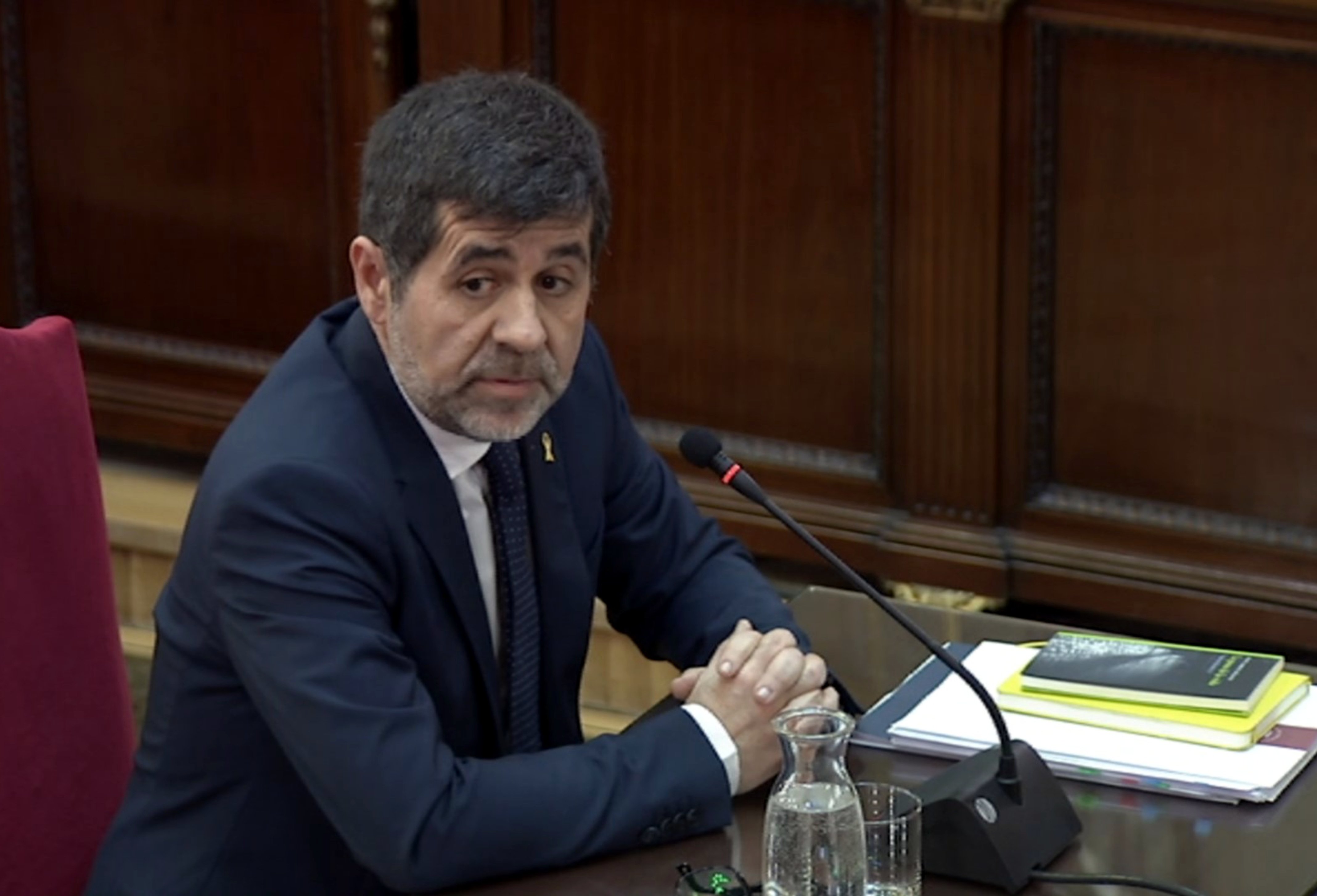He's one of the Catalan pro-independence leaders who spent the longest in pretrial detention and, today, Jordi Sànchez has given the longest testimony of all the witnesses so far: over five hours. The civil society leader's testimony in the trial in Madrid's Supreme Court was focused on refuting the allegations of violence against the Catalan independence movement.
The vehicles the Civil Guard left outside the ministry during their search and the condition they ended up in is the only point prosecutors have to demonstrate active violence. They need to prove violence for the charge of rebellion, the most serious facing the defendants.
Although they've repeatedly quoted there as having been seven vehicles which were damaged that day, today they only produced a Civil Guard report talking about three vehicles.
"I saw damaged vehicles, but it's not fitting nor proportional to believe that a specific, criticisable action on the part of a few individuals should be the excuse to criminalise, penalise a mobilisation of 40, 50, 60 thousand people," he said. The prosecutor replied that it's not the mobilisation, but its results that are being penalised.
He explained that he and Cuixart decided to climb on the cars to be able to encourage demonstrators to leave. Whilst in prior testimony he said they had asked permission to do so, today he admitted that wasn't true, saying that nerves had got the better of him before.
Santi Vila
The day started with minister Santi Vila, who resigned on 26th October 2017, the day before the declaration of independence in the Catalan Parliament.
"During the month of October [2017], by order of president Puigdemont, I form part of the group of politicians who talked with senior leaders of PSOE and the Spanish government who also had a strong interest in conciliation and avoiding the institutional clash," Vila said. He explained that having kept the situation on hold, with the promise of calling an election and avoiding anything which even though "only formal, only political... could prove again offensive, inflammatory", everything changed in 24 hours, pushing him to resign.
"I resign frustrated because from the night of 1st October there's a discrepancy in interpretations. Some recognise the referendum; others of us are convinced that what's happened is a very important mobilisation in favour of independence, but there were more than two and a half million Catalans who stayed at home," he said. "If we could go back to the start, we'd take the decisions in another way. What's happened in Catalonia is improper of a modern and advanced society," he concluded.
Next week
After a late evening yesterday, Manuel Marchena today ended proceedings at half past six in the evening, not having managed to hear testimony from Jordi Cuixart and Carme Forcadell as they had hoped. Yesterday, the defendants only arrived back in prison around 11pm to a cold dinner before having to wake up again early for court today.
Cuixart and Forcadell will now testify next Tuesday. If there is time, they will then move on to the witnesses as originally planned. To be able to get through everything scheduled for the week, the court will also gather on Friday morning if necessary. The judges also ruled sessions could last beyond 8pm if necessary.
The other quotes (Sànchez)
On learning the Civil Guard had left weapons unguarded in the vehicles: "That caused me to feel a tension I've experienced few times before".
On the search, despite the protest: "The legal party completed its task; it's not me saying that, the Civil Guard said it during their testimony before judge Lamela".
On the officials' safety: "There's not a second of those images where the legal party are put at risk".
On how the officials left: "I was responsible for the corridor [through the demonstrators], which is what was asked of me".
On the protest as a whole: "The legal actions created great indignation. And we members of the public have the right to protest".

